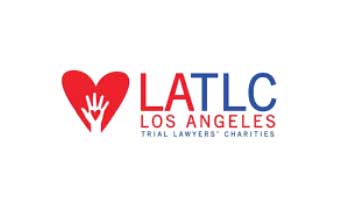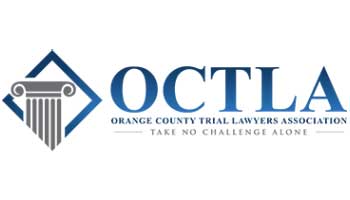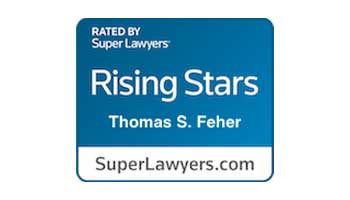Huntington Beach Workplace Discrimination Lawyer
Free Consultation Available!

- Top Rated Trial Firm
- Over $100 Million Recovered For Clients
- No Fees Unless We Win
FEATURED ON







Recent studies reveal that 40% of Californians have faced discrimination or been mistreated due to their race or ethnicity, highlighting the critical need for skilled legal intervention. Armed with extensive experience and a profound commitment to justice, Feher Law is prepared to offer unwavering support and expert representation in tackling discrimination lawsuits.
Whether you’re dealing with workplace issues, disputes, or any other form of unjust treatment based on your identity, rest assured that our team is equipped to deliver comprehensive support and expert guidance every step of the way.
In defending your rights vigorously in courtrooms or negotiation tables alike, our goal remains unwavering: to secure legal victories and meaningful changes affirming the dignity and promoting fairness for all individuals within our diverse community.
Why Feher Law?
When you entrust Feher Law with your employment discrimination law case, you will see benefits crafted to assist your workplace discrimination case:
- Proven Results: We have a track record of securing substantial settlements in employment law cases, including a recent $1,000,000 settlement in a wrongful termination case. This success reflects our commitment to achieving justice for our clients, even in challenging circumstances.
- Financial Flexibility: With Feher Law, there are no upfront costs. We operate on a contingency fee basis, meaning you only pay if we secure a favorable outcome. This ensures our focus remains on achieving your best result without adding financial stress during challenging times.
- Empathetic Approach: We recognize that seeking legal support often comes during periods of vulnerability, especially in cases involving wrongful termination or discrimination. Our team provides compassionate strategies, offering support and understanding throughout the legal process.
- Litigation and Trial Expertise: With a comprehensive grasp of legal proceedings, from filing claims to navigating complex litigation and advocating during trials, our team ensures your case is presented effectively.
CASE RESULTS
RESULTS FROM OUR MOST RECENT CASES
Meet Your Huntington Beach Attorneys
Get to know the dedicated legal team at Feher Law Firm, specializing in various employment law matters to protect your rights and seek justice.
What Clients Think of Us
Hear directly from our satisfied clients about how our relentless dedication, deep expertise, and focus on results have made a real difference in resolving their issues.
Their stories reveal the strong reputation we’ve built through hard work and success.
I was really impressed with the speed with how they were able to work to close and settle my case!
Props to Omar and the rest of the team at Feher!!
I want to express my sincere appreciation for your hard work, (Omar ) and his dedication to get me the policy limit and decreasing as much as he could for my pocket. I am thankful for your efforts and consideration as well as empathy towards my case. I do want to note he worked as fast as he could and I really am thankful. Please consider feher law, as well as Omar.
Helpful 0
Thanks 0 Love this 0 Oh
Having a legal team who are honest, clear, and genuinely care makes all the difference.
I’m so grateful I found Tom and his team early on. They were so patient, kind, and always made me feel supported, even on the hardest days. In the end, I feel they got me the best settlement possible, and that peace of mind means everything.
I’d recommend them to anyone who needs legal help, especially if you’re dealing with a TBI…they really go above and beyond 💛✨
On top of that, Omar reduced my medical bills from $36,000 down to just $8,000, which made a huge difference in how much I was able to keep from the settlement.
He kept me updated throughout the process and made sure everything was handled professionally. I highly recommend Omar and Feher Law to anyone who needs someone in their corner after an accident.
A special thanks to Gizi, whose guidance throughout the process was invaluable. Gizi’s dedication, knowledge, and unwavering support made a significant difference, helping me navigate with confidence and ease. Gizi was there every step of the way, ensuring I was informed.
The entire team at Feher Law demonstrated exceptional skill and commitment, and I wholeheartedly recommend their services to anyone in need of expert legal representation. Thank you Feher Law for turning a challenging situation into a positive outcome.
Ron s
I will refer This Law Firm to all my family, and friends.
Understanding California's Workplace Discrimination Laws
California is known for its well-written laws that protect employees from workplace discrimination. These laws are designed to ensure fair treatment and equal opportunities for all individuals in the workplace, regardless of their race, gender, age, disability, sexual orientation, religion, or other protected characteristics.
Understanding these laws is essential for employers and employees to foster a discrimination-free work environment.
- Protected Characteristics: California’s Fair Employment and Housing Act (FEHA) prohibits discrimination based on various protected characteristics. These include race, color, national origin, ancestry, religion, sex, gender, gender identity, gender expression, sexual orientation, marital status, age, disability, genetic information, and military or veteran status.
- Prohibited Actions: Under FEHA, employers are prohibited from taking adverse employment actions, such as hiring, firing, promoting, or compensating employees differently based on protected characteristics. Discriminatory practices such as harassment, retaliation, and creating a hostile work environment are also illegal.
- Reasonable Accommodations: California employers must provide reasonable accommodations to employees with disabilities to enable them to perform their job duties effectively. This may include modifications to workspaces, flexible work schedules, or providing assistive devices.
- Reporting and Remedies: Employees who believe they have been subjected to discrimination have the right to file a complaint with the California Department of Fair Employment and Housing (DFEH) or the federal Equal Employment Opportunity Commission (EEOC). Remedies for discrimination may include compensation for damages, reinstatement, or other appropriate relief.
- Employer Responsibilities: Employers in California have a legal obligation to take proactive measures to prevent and address discrimination at work. This includes implementing anti-discrimination policies, training employees and managers, conducting investigations into complaints, and taking prompt corrective action when necessary.
Consulting with employment attorneys in Huntington Beach who have experience can help navigate these complex regulations and ensure compliance with the law.
Specific Types Of Discrimination
Discrimination in the workplace can manifest in various forms, targeting individuals based on their protected characteristics:
- Racial: When an individual is treated unfavorably because of their race or ethnicity. This can include hiring decisions, promotions, pay disparities, or hostile work environments based on racial stereotypes.
- Gender: Involves mistreating an individual due to their gender or gender identity. This can include differential treatment in hiring, promotion, or compensation based on gender, as well as harassment or retaliation for asserting one’s gender identity.
- Age: When an individual is treated less favorably because of their age, typically targeting older workers. This can include discriminatory practices in hiring, layoffs, promotions, or training opportunities based on age stereotypes.
- Disability: Unfair treatment or mistreatment of individuals with disabilities, including physical, mental, or cognitive impairments. This can include failure to provide reasonable accommodations, harassment, or retaliation against individuals with disabilities.
- Sexual Orientation: Targets individuals based on their sexual orientation, including lesbian, gay, bisexual, and transgender (LGBT) individuals. This can involve discrimination in hiring, promotion, or workplace harassment based on stereotypes.
- Religion: This can include failure to accommodate religious practices, harassment based on religious beliefs, or treatment in hiring or promotion.
Employers are legally obligated to prevent and address discrimination, while employees have rights protected under federal and state anti-discrimination laws.

Combating Racial Discrimination in Huntington Beach Workplaces
At Feher Law, our Huntington Beach racial discrimination attorneys fight workplace bias with proven results, including a $7,000,000 civil rights settlement. When employers treat workers unfavorably because of their race, color, ethnicity, or national origin, California’s Fair Employment and Housing Act (FEHA) provides comprehensive protection that goes beyond federal standards.
California law specifically prohibits both direct discrimination and indirect practices that disproportionately impact certain racial groups. Our legal team represents clients facing various forms of workplace racial bias, from hiring discrimination and promotion denials to hostile work environments and wage disparities based on race.
Your Rights Under California Employment Law
California’s FEHA covers employers with five or more employees and provides broader protections than federal Title VII, which requires 15 employees. This means more Huntington Beach workers are protected under state law, with access to unlimited compensatory and punitive damages that make FEHA often more advantageous than federal claims.
Recent Orange County employment discrimination data shows racial discrimination complaints have increased by 35% over the past three years, reflecting persistent workplace bias issues throughout the region. Research from institutions such as UC Irvine School of Social Sciences has examined how workplace discrimination reduces long-term earnings and career opportunities, findings that help support substantial damages in successful California discrimination cases.
Our experienced attorneys understand both the legal framework and the local employment landscape in Orange County, allowing us to build compelling cases that address the specific discrimination patterns common to Huntington Beach and surrounding areas.
Whether you’ve experienced direct discriminatory statements, systematic exclusion from advancement opportunities, or hostile work environment harassment, we work with employment experts and investigators to gather compelling evidence and secure maximum compensation for both economic losses and emotional suffering.
For comprehensive legal representation in race-based employment claims and to learn about your rights under California’s expanded three-year filing deadline, our Huntington Beach racial discrimination attorneys provide dedicated advocacy with the proven results you deserve during this challenging time.
How Do I Prove Discrimination at Work?
Workplace discrimination is prohibited under state and federal laws in California, providing extensive employee protections.
The primary legislation governing discrimination at work in California is FEHA.
FEHA applies to employers with five or more employees, including both public and private sector employers. It covers various aspects of employment, including hiring, termination, promotion, compensation, and terms and conditions of employment. Additionally, FEHA prohibits retaliation against employees who oppose discriminatory practices or file complaints alleging discrimination.
In addition to FEHA, federal laws such as Title VII of the Civil Rights Act of 1964 and the Americans with Disabilities Act (ADA) also provide protections against workplace discrimination. These laws complement FEHA and may offer additional avenues for redress for aggrieved employees.
As such, employers and employees must understand their rights and obligations under California workplace discrimination laws to ensure compliance and prevent discriminatory practices.
Evidence Needed to File an Unlawful Discrimination Claim
Filing an unlawful discrimination claim requires gathering solid evidence to support your case. Understanding what evidence is needed strengthens your position and prepares you for the legal process ahead, ensuring that you can effectively argue against unjust treatment:
- Documentation: Collect any relevant documents, including emails, memos, performance evaluations, and employment records, that support your discrimination claim. These documents can provide concrete evidence of discriminatory actions or patterns.
- Witness Statements: Obtain statements from co-workers, supervisors, or other witnesses who observed or can attest to the behavior you experienced.
- Employment Policies: Review company policies, handbooks, and procedures to identify any practices or policies that may have been violated. Any disparities between stated policies and actual treatment can be used as evidence of discrimination.
- Comparative Evidence: Identify instances where employees in similar situations or with similar qualifications received preferential treatment or were subjected to different standards. Comparing treatment between similarly situated individuals can highlight wrongful practices.
- Adverse Employment Actions: Document any adverse employment actions you experienced, such as demotion, termination, denial of promotion, or unequal pay, and gather evidence supporting the motives behind these actions.
- Personal Records: Keep a record of any personal notes, diaries, or journals detailing incidents of discrimination, including dates, times, and descriptions of discriminatory behavior. These records help provide a timeline and context for your claims.
- Direct Evidence: If available, gather direct evidence of statements or actions made by supervisors, managers, or co-workers. Direct evidence directly links intent to adverse employment actions.
- Circumstantial Evidence: In the absence of direct evidence, gather circumstantial evidence that supports an inference of discrimination, such as treatment patterns, statistical disparities, or changes in behavior following the assertion of your rights.

The Process For Filing a Complaint
Filing a complaint in California typically involves several steps to ensure that your rights are protected and your claim is adequately addressed:
- Document the Discrimination: This may include emails, memos, performance evaluations, witness statements, and personal notes detailing incidents of discrimination.
- Contact DFEH: The first step in filing a discrimination complaint is to contact the DFEH, which is the state agency responsible for enforcing California’s anti-discrimination laws. You can file a complaint with the DFEH online, by mail, or in person at one of their offices.
- File a Complaint: You’ll need to provide detailed information about the discrimination you’ve experienced, including the nature of the discrimination, the individuals involved, and any relevant evidence you’ve collected. The DFEH will investigate your complaint and may attempt to resolve it through mediation or other informal methods.
- Obtain a Right-to-Sue Notice: If the DFEH cannot resolve your complaint, they will issue you a right-to-sue notice, allowing you to file a lawsuit against your employer in civil court. This notice allows you to pursue legal action independently or with the assistance of an attorney.
- Consider Legal Representation: While you have the right to represent yourself in a discrimination lawsuit, it’s often beneficial to seek legal representation from an experienced employment law attorney. Our attorneys at Feher Law can provide valuable guidance and advocacy throughout the legal process, increasing your chances of a successful outcome.
The Clock Is Ticking!
California has extended the timeframe for filing an employment discrimination claim. As of January 1, 2020, amendments to the Fair Employment and Housing Act (FEHA) allow employees to initiate a charge up to three years from the date the discrimination, retaliation, or harassment occurred.
This change significantly increases the period from what was previously allowed, giving individuals more time to take legal action against unfair treatment in the workplace.
Wondering How Much Your California Discrimination Case Could Be Worth?
The California discrimination lawsuit settlement calculator helps estimate potential compensation by evaluating key factors in your unique situation. Under California law, discrimination victims may be entitled to several forms of compensation:
- Back pay and front pay for lost wages
- Emotional distress damages
- Reasonable workplace accommodations
- Punitive damages for egregious employer misconduct
- Legal fee reimbursement
- Job reinstatement or promotion
Don’t navigate these complex workplace discrimination claims alone – call our experienced team at (866) 646-6676 for a free consultation and personalized case evaluation today.
Disclaimer: The results provided by this discrimination lawsuit settlement calculator are for informational purposes only and do not constitute legal advice. The estimates are based on general inputs and do not reflect the unique details of your case, such as jurisdictional laws or liability factors.
What Can I Expect to Pay For Your Help?
At Feher Law, we offer our legal services for employment law claims on a contingency fee basis. This means you won’t have to pay any upfront costs or out-of-pocket expenses. Our fees are contingent upon the successful resolution of your case, so you only pay if we secure compensation for you.
This ensures our goals align directly with yours, and we are fully committed to fighting for the justice and settlement you deserve.
Our Areas of Expertise
As Huntington Beach employment lawyers, Feher Law offers comprehensive expertise in employment law, focusing on the following key areas to address your needs effectively:
Other Locations We Serve
Our services span across Orange County, including but not limited to:
|
|
|
|
Have You Faced Illegal Discrimination or Harassment? File a Claim Today!
Don’t let workplace discrimination disrupt your well-being. Consult with our specialized discrimination attorneys in Huntington Beach to initiate the journey toward addressing and resolving these issues.
At Feher Law Firm, we understand the complexities surrounding discrimination law and pledge to offer tailored, impactful solutions once we’ve thoroughly reviewed your situation.
Contact us today at (866) 646-6676 for an initial consultation or case review from one of our dedicated California discrimination law experts.
Services We Offer
When it comes to your recovery and peace of mind, it’s vital to have an expert by your side that really understands the bigger picture of employment law. Explore the full range of services we offer below.
GET A FREE CONSULTATION
Our team is standing by and ready to assist you. Consultations are completely free and confidential. We will help you determine if you have a case.
- Over $100 Million Recovered For Clients
- No Fees Unless We Win
- We Fight for Maximum Compensation
- Get The Justice You Deserve
"*" indicates required fields
FAQs
Can I sue for discrimination in California?
Yes, individuals who experience discrimination in the workplace in California have the legal right to file a lawsuit against their employer. California has robust anti-discrimination laws in place to protect employees from discrimination based on various protected characteristics, including race, color, national origin, ancestry, religion, sex, gender identity, sexual orientation, age, disability, genetic information, marital status, and military or veteran status.
What is the Fair Employment Act in California?
The Fair Employment and Housing Act (FEHA) in California is a state law that prohibits discrimination and harassment in employment and housing based on protected characteristics such as race, color, religion, sex, gender identity, sexual orientation, marital status, national origin, ancestry, disability, medical condition, age (40 and over), and genetic information.
It provides individuals with legal protections against discrimination and harassment in various aspects of their lives, including hiring, firing, promotion, compensation, and terms and conditions of employment. FEHA also mandates that employers provide reasonable accommodations for employees with disabilities and engage in the interactive process to address their needs.
Additionally, it establishes procedures for filing discrimination complaints with the California Department of Fair Employment and Housing (DFEH) and allows individuals who have experienced discrimination to pursue legal remedies through administrative or civil proceedings.
What are my rights as an employee in California?
As an employee in California, you are entitled to various rights under state and federal laws, including protection against discrimination based on race, religion, gender, and age and the right to a safe workplace, fair treatment, and lawful compensation. You also have the right to family and medical leave, protected leave, and privacy in the workplace.
These rights are enforced by agencies like the California Department of Fair Employment and Housing and the Equal Employment Opportunity Commission, and seeking legal advice is crucial if you believe your rights have been violated.





















